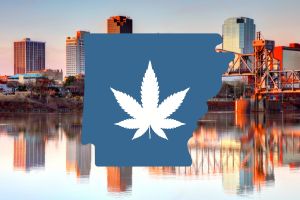Is CBD Flower Legal in Arkansas?
Posted by Tweedle Farms on Jul 12th 2021

Hemp in the Heartland: Understanding the Legality of Hemp in Arkansas
The landscape of hemp and its derivative products, such as CBD flower, is continually evolving across the United States, with Arkansas playing a significant role in the southern hemp industry. This article aims to shed light on the legal framework surrounding hemp in Arkansas, addressing pivotal concerns for both industry players and consumers. By navigating through the complexities of state laws and regulations, we aim to provide clarity and guidance for those involved in or interested in the Arkansas hemp market.
The Legal Framework for Hemp in Arkansas
Arkansas's approach to hemp is shaped by both federal and state regulations. Following the 2018 Farm Bill, which federally legalized hemp containing less than 0.3% THC, Arkansas established its own hemp program under the Arkansas Industrial Hemp Act. This program is managed by the Arkansas Department of Agriculture, which oversees the licensing of hemp cultivation, processing, and distribution within the state.
Understanding Hemp Flower, CBD Flower, and THCA Flower
Understanding the terminology is crucial for both consumers and industry participants. In Arkansas:
- Hemp Flower refers to the bud of the hemp plant, which is legal as long as it contains less than 0.3% THC. Hemp flower is often used as material for extraction and product formulation.
- CBD Flower is a term often used interchangeably with hemp flower, although “CBD flower” typically refers to manicured flowers that are especially aesthetically pleasing.
- THCA Flower contains tetrahydrocannabinolic acid, the non-psychoactive precursor to THC. When heated, THCA converts to THC, which raises legal concerns if the resulting THC exceeds legal limits.
Challenges and Considerations for Industry Stakeholders
For those involved in the Arkansas hemp industry, several key factors need attention:
- Licensing and Compliance: Ensuring that all activities, from cultivation to sale, comply with state regulations is paramount. This includes obtaining the necessary licenses and adhering to testing and quality standards.
- Market Dynamics: Arkansas's hemp market is influenced by both state and national trends, requiring stakeholders to stay informed and adaptable to shifts in consumer demand and regulatory changes.
- Education and Advocacy: Given the misconceptions and legal complexities surrounding hemp, stakeholders have a role in educating consumers and advocating for clear, fair regulations.
Consumer Guidance in the Arkansas Hemp Market
For consumers in Arkansas, navigating the hemp market requires a cautious approach:
- Verifying Product Legality and Safety: Consumers should only purchase hemp products, including pre rolls, CBD gummies, capsules, and more, from licensed and reputable sources. This ensures the products are legal, tested, and safe.
- Understanding Product Labels: Being able to read and understand product labels, including CBD content and THC levels, is crucial in making informed choices.
- Staying Informed: The legal status and understanding of hemp and its derivatives are continuously evolving. Consumers should stay informed about the latest laws and research to make educated decisions.
The Future of Hemp in Arkansas
Arkansas's hemp industry, like many across the United States, is at a crossroads, balancing between growth opportunities and regulatory challenges. The state's commitment to a regulated hemp program underscores its potential economic and agricultural benefits. However, the success of this burgeoning industry hinges on clear, consistent regulations and the collective efforts of both stakeholders and consumers to foster a responsible and informed hemp community.
As Arkansas continues to navigate the complexities of the hemp industry, the collaborative efforts of regulators, industry participants, and consumers will be paramount in shaping a sustainable and prosperous future for hemp in the state. With a focus on education, compliance, and advocacy, Arkansas can set a benchmark for hemp legality and industry best practices, contributing to the broader narrative of hemp in America.



